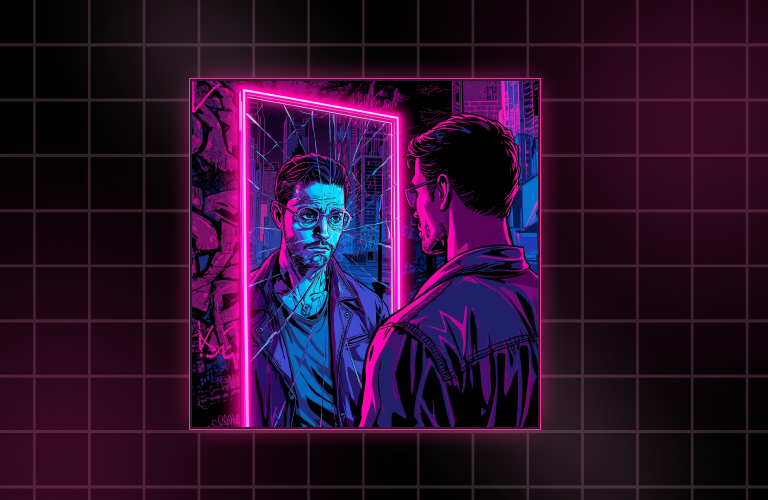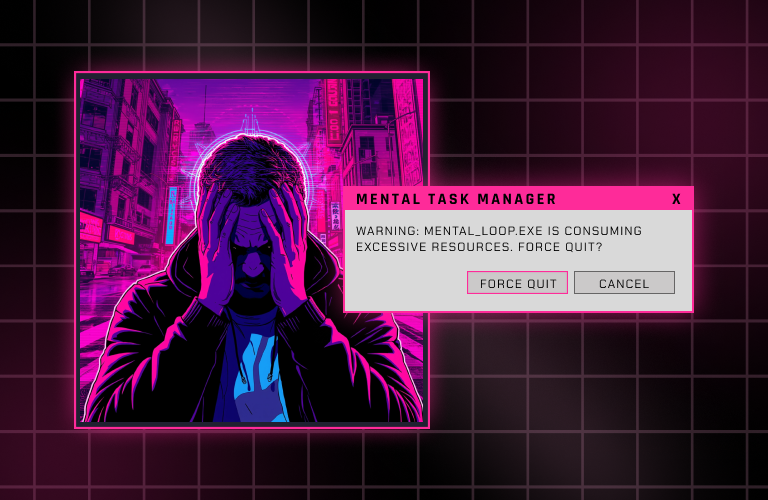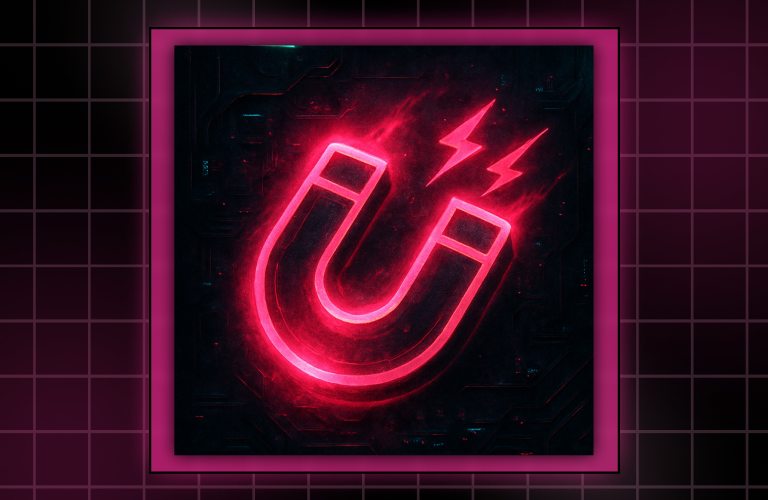
Escape The Niche Trap: Thrive as a Specialized Generalist
To niche or not to niche? That is the question.
I’ve seen a few debates on this topic during my time on Twitter (or should I say X?).
One side says yes.
The other side says no.
Which one is it?
I’ve been racking my brain around this for the past month. As some of you may know I got into web design and that is the service I now offer.
My dilemma?
I don’t want to center all my content around web design.
How can I sell a service like web design if I don’t talk about it 24/7 right?
But that feels constraining, restricting, and honestly boring as f**k.
I love web design, but I don’t wanna talk about it 24/7 in every piece of content.
That’s not why I started creating.
Now I have to use my social media platforms to market web design services?
I began to understand why some advise against monetizing your passions & hobbies.
I was getting frustrated.
Resentful even.
“How does this all connect?”
I started diving back into one of my favorite creators: Dan Koe.
The niche is you right?
Things started clicking for me in new ways. I now understand his content & course materials from a deeper level, with an expanded awareness.
Let’s break it down.
Niching Down Is Horrible Advice
I didn’t follow a single niche specific web designer on Twitter until I began learning web design myself.
Right off the bat that should tell you something.
From my limited time in the design community on Twitter it seems like it’s mostly just designers attracting designers.
As I immersed myself in the community, they all looked relatively similar.
They all posted their designs, showcasing the work they could do.
Their work wasn’t necessarily bad, it just didn’t stand out from the sea of other web designers posting designs that were just as good.
But wait—there was one guy who did stand out.
He posted his designs, but also talked about running.
He shared how he was training for a half-marathon.
He stood out to me from all the other web designers because he was actually different.
He actually had some personality beyond web design.
I felt like I was getting to know him, and I automatically liked him because I’m also a runner.
When you niche down you become a single-skill commodity.
You’re another web designer in a sea of web designers.
The specialist competes with other specialists.
The generalist, on the other hand, is diverse and interesting.
He has broad knowledge over multiple domains. But the argument against the generalist is that he lacks depth of knowledge in any skill.
It’s a fair point.
This brings me to the middle ground.
The specialized generalist.
Why The Specialized Generalist Wins
The specialized generalist develops high proficiency in 1 or 2 key skills, and an arsenal of complementary skills.
Here’s a visual representation: The skill tree of the specialist vs. the specialized generalist.

While a specialist might be useful in a large company, like having someone who specializes in UX (user experience) design. It’s hardly helpful if you want to thrive in the digital age as a solopreneur, where you must be someone who wears many hats.
To thrive in the digital age you must become a specialized generalist.
These individuals are also known as T-shaped individuals.
They have a depth of understanding in a single field with a breadth of understanding across multiple domains. This actually leads to unique insights, sparking innovation and creativity.

Becoming a specialized generalist is how you craft your niche of one or your personal monopoly.
Don’t want to look like every other web designer out there? Start stacking other skills.
“Every skill you acquire doubles your odds of success.” —Scott Adams
Scott Adams outlines two paths to being extraordinary:
- Become the best at one specific thing.
- Become very good (top 25%) at two or more things.
Which one do you think you have a better shot at?
Let’s use basketball as an example:
Not everyone who plays basketball will make it to the NBA. In fact, many who do make it don’t last long. About 40% of rookies are no longer in the NBA after their first two seasons.
Almost half disappear.
Geez.
I use basketball as an example to point out how tough it is to become the best at a specific thing.
You have a better shot at becoming the top 25% in a wide variety of skills.
This makes you unique.
When I was learning web design, I was following a girl on youtube who taught you how to start making money as a web designer.
In one video, she explains she’s able to sell 10k websites because she can also help her client run a successful email marketing campaign for a product launch. (She had done it for herself first; hmm the niche is you.)
She pairs web design with another high-value skill, which makes her valuable.
She doesn’t need to be the best web designer. She’s different. She has a unique angle.
When you take the specialized generalist route you diversify yourself in the market. No one will have the same set of unique skills & interests.
Someone who posts about web design, email marketing, and running is still different from someone who pairs web design, email marketing, and spirituality.
They both have a unique skill set and diverse experiences which gives them both unique insights.
Master your domain of reality by building out your character’s skill tree.
Stack skills by solving your own problems and following your genuine curiosity.
Your unique positioning in the market is just being you. Nobody can beat you at being you.
While your content can remain broad, you still need a niche offer(s). Like how I sell web design services.
I can almost guarantee that nobody reading this right now would be reading my content if it was only about the best way to optimize your website. (Unless you were already aware of how a website could solve a specific problem).
By now you’re probably thinking, “Okay, I get it. I won’t stand out by talking about a single skill. But then how do I sell my offer?”
I gotcha.
Guidelines For Selling as A Specialized Generalist
This is my plan to make content around whatever I want, but still sell and teach web design.
1 - Choose Your Brand Philosophy
Wanna know why Apple has been able to sell products beyond just computers?
Apple has a brand philosophy: “Think Different.” Thus Apple can sell anything that fits under this brand philosophy.
MP3 players (iPod), phones (iPhones), and now VR headsets (the Vision Pro).
In summary, they sell innovative products to non-conformists.
Simon Sinek talks about this in his book, “Start With Why.” The big idea from that book is people don’t buy what you do, they buy why you do it. (Or you could say they buy into your brand philosophy.)
This is essentially how Dan Koe operates. He isn’t selling you writing courses (writing is what he does). He’s selling you his lifestyle. He’s selling you his philosophy: “Work less. Make more. Enjoy life.”
Anybody who buys into his philosophy will buy his products, whether they are writing courses (2-Hour Writer), writing software (Kortex), or a book (Art of Focus).
His products are positioned as a way to achieve that lifestyle (brand philosophy).
He argues that he could sell a fitness program if he really wanted as long as he positions it under his philosophy.
I can see it now. It’d be something like: “If you want to work less and make more—you need energy. Here is the exact training and nutrition plan I use to have more energy so that I can get more done in less time.”
Or something like that.
I’m just making some shit up on the fly.
You get what I mean.
I’m still toying with this myself but “master the video game of life to thrive in the digital age” is my brand philosophy.
Ideally, I’ll attract people who are in pursuit of mastery (mental mastery, skill mastery, life mastery, etc. who are also entrepreneurs).
This will take some time to develop.
Think about your own goals? Where are you leading people? What is your idea of living a good life? What lifestyle are you selling? This will reveal your own brand philosophy.
2 - Monetizable Skill (Something that makes you money)
Secondly, you need a monetizable skill (aka a skill that makes your money). Something like web design, copywriting, or video editing. You could be a personal trainer or a mindfulness coach.
Doesn’t matter, but it needs to be something that solves a burning problem in the eternal markets (health, wealth, relationships, and happiness).
Follow your curiosity.
Once you have your offer, position it under your brand philosophy.
3 - Establish Authority With Digital Asset(s)
Develop an asset that showcases your expertise and authority in your chosen field.
Some ways to do this:
- Compelling landing page for your product or service that establishes authority
- A pinned post on Twitter, Threads, or Instagram that establishes authority with a CTA to work with you
- A blog post on your website you can always link people to
- A lead magnet that solves a narrow problem in your expertise
These are all good ways to establish authority so that you don’t have to talk about your expertise 24/7 in your content.
4 - Broaden Content
Now this is where you can really differentiate yourself by talking about your other interests and stacking more skills.
But there is a strategy behind it.
Frame other skills and interests under your brand philosophy.
Present all skills and interests as elements that contribute to your audience’s larger goal, such as mastering the video game of life or working less and making more.
Let’s say I want to talk about emotional regulation:
I frame it as a skill for mastering the game of life (because it is): Self-mastery and emotional regulation help you navigate challenges and stay focused, enabling you to thrive in both life and business.
Dan Koe would frame it as a way to help you work less and make more: Emotional regulation reduces reactivity, leading to better decision-making and increased efficiency.
We are essentially saying the same thing but positioning it under our brand philosophy. We can talk about whatever we want as long as we frame it as a way to achieve the lifestyle we are selling.
One more thing.
Remember when I said I didn’t follow a niche specific web designer until I myself started learning web design?
Broadening content also allows you to attract a broad audience. You attract people who aren’t even aware of how a website could solve their problems. (Or already have a website, but don’t realize it’s not designed optimally).
When you niche down and get hyper-specific—you attract people with higher levels of awareness already. People who follow web designers are either (a) designers themselves or (b) people who are already aware of how a website could solve some of their problems and are shopping around.
The benefit of broad content—you attract people on the lower levels of awareness who may not even be aware of their problem or your solution. You then lead them up the ladder of awareness by making them aware of their problem and your solution with your content.

Social media (short-form content) is best for handling lower levels of awareness. Ideally you have a newsletter. The newsletter (long-form content) addresses the higher levels of awareness.
With this framework, your content can be 20% authority and 80% other skills and interests, or you can aim for a 50/50 balance.
In short, choose your brand philosophy. What are you leading people towards? Position everything you talk about as a way to achieve that.
Talk soon.
—Priscilla [Player 2]


.png)

.png)




.png)











.png)

.png)

